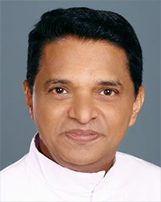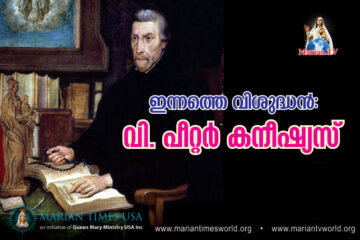THE DESCIPLES WILL WITNESS THE GLORY (Sunday Homily)


~ Fr. Abraham Mutholath ~
Chicago, USA. ~
Season of Denha
FIRST SUNDAY: JOHN 1:45-51
INTRODUCTION
During this season of Denha (the Syriac word means revelation or manifestation), we observe the baptism of Jesus and the beginning of his public ministry with the selection of hisapostles. During the Fridays of Denha, we honor John the Baptist and the saints who experienced the glory of Jesus. Based on that divine experience, they shared the gospel of Jesus to others.On this First Sunday of Denha, we focus on Nathanael (Bartholomew) who became an apostle of Jesus and to whom Jesus promised, “Amen, amen, I say to you, you will see the sky opened and the angels of God ascending and descending on the Son of Man” (Jn 1:51). Nathanael could follow Jesus because Philip introduced him to Jesus. Like Nathanael, let us be true Christians without any duplicity so we can also enjoy the glory of Jesus at his second coming.
BIBLE TEXT (JOHN 1:45-51)
(John 1:45) Philip found Nathanael and told him, “We have found the one about whom Moses wrote in the law, and also the prophets, Jesus, son of Joseph, from Nazareth.” (46) But Nathanael said to him, “Can anything good come from Nazareth?” Philip said to him, “Come and see.” (47) Jesus saw Nathanael coming toward him and said of him, “Here is a true Israelite. There is no duplicity in him.” (48) Nathanael said to him, “How do you know me?” Jesus answered and said to him, “Before Philip called you, I saw you under the fig tree.” (49) Nathanael answered him, “Rabbi, you are the Son of God; you are the King of Israel.” (50) Jesus answered and said to him, “Do you believe because I told you that I saw you under the fig tree? You will see greater things than this.” (51) And he said to him, “Amen, amen, I say to you, you will see the sky opened and the angels of God ascending and descending on the Son of Man.”
INTERPRETATION
Background
John the Baptistwas God’s messenger and return of Elijah to prepare the way of the Messiah. Because of his fiery speeches and the baptism of repentance he performed, some Jews misunderstood him as the Messiah. However, he confirmed that he was not the Messiah (Jn 1:20). When Jesus approached him, John introduced Jesus as the Messiah to the public and to his disciples. John said of Jesus as:
- “The Lamb of God who takes away the sin of the world” (Jn 1:29).
- The one who “ranks ahead of me because he existed before me” (Jn 1:30).
- “The reason why I came baptizing with water was that he might be made known to Israel” (Jn 1:31).
- “I saw the Spirit come down like a dove from the sky and remain upon him” (Jn 1:32).
- “He is the Son of God” (Jn 1:34)
When Jesus arrived the next day, John introduced Jesus to two of his disciples and they became the first followers of Jesus (Jn 1:35-37). They were Andrew, the brother of Simon Peter and an unnamed disciple (possibly John the Evangelist). The next day Jesus met Philip from Bethsaida in Galilee and made him his follower. He found his friend Nathanael and invited him to meet Jesus who must be the fulfillment of the Law and the Prophets.
(45) Philip found Nathanael and told him, “We have found the one about whom Moses wrote in the law, and also the prophets, Jesus, son of Joseph, from Nazareth.”
Philip
Philip was one of the 12 apostles of Jesus Christ born in Bethsaida of Galilee. Some believe that Philip wasa follower of John the Baptist along with the Apostle Andrew. Both left the discipleship of John when he introduced them to Jesus Christ. Like Andrew introduced Jesus to his brother Simon Peter, Philip introduced Jesus to Nathaniel who is also known as Bartholomew in the Synoptic gospels. Unlike the Synoptic gospels and Acts of the Apostles that mention Philip’s name only among the list of the Apostles(Mt 10:2-4, Mk 3:14-19, Lk 6:13-16, and Acts 1:13-16), the Gospel of John gives more details of Philip:
- “Philip was from Bethsaida, the town of Andrew and Peter” (Jn 1:43)
- Jesus found Philip and called him (Jn 1:44)
- Philip found his friend Nathanael and introduced Jesus to him (Jn 1:45-46)
- Jesus tested Philip before the multiplication of bread and fish by asking “Where can we buy enough food for them to eat?” to which Philp replied, “Two hundred days’ wages worth of food would not be enough for each of them to have a little [bit]” (Jn 6:5-7).
- Some Greeks who came to Jerusalem for the Feast of Passover came to Philip asking his help to see Jesus. Philip along with Andrew notified that to Jesus (Jn 12:20-22).
- At the Last Supper, Philip said to Jesus, “Master, show us the Father, and that will be enough for us.” Jesus responded, “Have I been with you for so long a time and you still do not know me, Philip? …” (Jn 14:8-9).
Here are some features of Philip the Apostle:
- Jesus personally reached out to Philip and said to him, “Follow me” (Jn 1:43).
- Philip encouraged Nathanael to follow Jesus (Jn 1:45-46).
- The Synoptic Gospels paired Philip with Bartholomew (Nathanael) (Mt 10:3, Mk 3:18, Lk 6:14).
- Based on Jesus’ question to Philip, “Where can we buy enough food for them to eat?” some assume that he oversaw food and supplies of Jesus and his team.
- Apostle Philip is often confused with Deacon Philip in the Acts of the Apostles (Acts 8:5; 8:26-40; 21:8).
Philip is believed to have preached in Greece, Syria, and Phrygia and became a martyrin Hierapolis around 80 AD. The Catholic Church celebrates his feast on May 3rd, Armenian Church on November 17th, and Coptic Church on November 18th(http://saintsresource.com/philip-the-apostle).Philip’s presumed remains were moved to the Basilica of the Twelve Apostles in Rome, which was originally dedicated to Saints Philip and James the Less. So, the feasts of both these apostles are celebrated on the same day. (https://stphilipsoconnor.org.au/story/saint_philip)
Nathanael (Bartholomew)
Most scholars believe that Bartholomew in the Synoptic Gospels and Nathanael in John are different names of the same person. Nathanael means “El (God) has given” or “Gift of God (El).” Bartholomew signifies “son of Tolomæus” because he was son of Tolomæus or Tolmai. Thus, Bartholomewis his patronymic name referring to his father like Bar-Jonah (son of Jonah)that Jesus used for Peter (Mt 16:17). Bartholomew was from Cana in Galilee and is mentioned in Mt 10:3; Mk 3:18; Lk 6:14; Jn 1:45-49, 21:2; and Acts 1:13.
The specialties of Nathanael (Bartholomew) are the following:
- His friend Philip introduced him to Jesus (Jn 1:45-46).
- At first sight Jesus certified Nathanael as a true Israelite and without any duplicity (Jn 1:47).
- He confessed Jesus as “the Son of God” and “the King of Israel” at his first encounter with Jesus (Jn 1:49).
- While other apostles took time to understand Jesus as the Christ, Nathanael realized it before following Jesus.
- Nathaniel was the first disciple to recognize Jesus Christ as the Son of God.
- He was an expert in the Law and the Prophets, thus literate compared to the other apostles.
- His name was used differently by the gospels. While John uses the name Nathanael, the Synoptic gospels present him as Bartholomew.
- He was one among the seven disciples to whom Jesus appeared at the Sea of Galilee after His Resurrection (Jn 21:2).
- The Synoptic Gospels paired Bartholomew with Philip in listing the apostles (Mt 10:3, Mk 3:18, Lk 6:14).
There are legends and traditions on Nathanael’s ministry after the Pentecost. He paired up with Philip to evangelize in Turkey and Asia Minor. According to the fourth century writer Eusebius of Caesarea, Bartholomew preached in India and left the writing of Matthew in Hebrew (https://overviewbible.com/bartholomew-the-apostle).Popular belief is that Bartholomewwas martyred by skinning aliveand then beheaded in Armenia in 72 AD. Another legend is that he was crucified upside down in Albania. Christian sects celebrate his feast on different dates. Catholic Church honors him on August 24th.
Philip found Nathanaeland told him
Why Philip went in search of Nathanael from Cana (Jn 21:2) and shared what he saw in Jesus? Probably Nathanael had better knowledge of the Law and the Prophets and sought confirmation from him. Philip understood Jesus as the son of Joseph and a divine person from Nazareth. Whereas, after meeting with Jesus, Nathanael could affirm Jesus as the Son of God. That motivated both to follow Jesus and work as a team with Him and for him after His resurrection. Philip meeting Nathanael is parallel to Andrew introducing Jesus to his brother Simon stating, “We have found the Messiah” (Jn 1:41).
“We have found the one …”
Philip used the plural “we” to indicate that besides him there are others like Andrew and Peter who have found Jesus as the fulfillment of the promise of a Saviour mentioned in the Law and the Prophets.
“We have found the one …”
Instead of using “a person” Philp used “the one” to indicate the specific person who is the Christ.
About whom Moses wrote in the law, and also the prophets
In Deuteronomy 18:15, Moses said,“A prophet like me will the LORD, your God, raise up for you from among your own kindred; that is the one to whom you shall listen.” There are other references to the advent of a Saviour in the Pentateuch like Genesis 3:15; 49:10, and Deuteronomy 18:18.
Through the Prophet Jeremiah the LORD said, “See, days are coming – oracle of the LORD – when I will raise up a righteous branch for David;As king he shall reign and govern wisely,he shall do what is justand right in the land.In his days Judah shall be saved,Israel shall dwell in security.This is the name to be given him:‘The LORD our justice’” (Jr 23:5-6). Several prophets gave hope to the Israelites on the Messiah to come. So, they were waiting for this significant event to happen. Philip was excited to assure that it was Jesus of Nazareth whom he found with other disciples of Jesus. He wanted to confirm that with his scholarly friend Nathanael.
Jesus, son of Joseph
While Jesus led a humble life in Nazareth along with Joseph and Mary until he was 30, he was known as the son of Joseph. Most people did not know of His virgin birth and that Joseph was his foster father. A child could also be titled as the son of his legal father. Joseph was legally married to Mary the virgin mother of Jesus. There are other instances when people used “son of Joseph” for Jesus (Lk 4:22, Jn 6:42).When Mary found 12-year-old Jesus in the Temple after searching him for three days she said of Joseph as his father.“Your father and I have been looking for you with great anxiety” (Lk 2:48).So, it was natural that Philip also understood Jesus as son of Joseph which was the common belief of the time.
Jesus from Nazareth
Since several persons have the same name, the ancient Jews used to add either the father’s name or the native place to the name for better identification. Examples for adding names of places to a person’s name in the Bible areMary Magdalene (Lk 8:2), Simon the Cyrene (Lk 23:26), and Joseph of Arimathea (Lk 23:51). Though Jesus was born in Bethlehem, he spent most of his lifetime in Nazareth until his public ministry. Hence, he was also known as Jesus of Nazareth. That according to Matthew was the fulfillment of prophesies that “He shall be called a Nazorean” (Mt 2:23). Philip and Nathanael know Nazareth because it was only three hours walk from Cana, the native place of Nathanael.
(46) But Nathanael said to him, “Can anything good come from Nazareth?” Philip said to him, “Come and see.”
“Can anything good come from Nazareth?”
Biblical scholars attribute distinct reasons for this question from Nathanael.
- Nazareth was a small village with around 400 inhabitants at that time. So, people could expect nothing significant from there.
- Some believe that it was because of the jealousy or prejudice between Cana and Nazareth that were neighboring villages. The reason is that Nathanael was not just asking about the origin of the Messiah but even “anything good.”
- There could be ill reputation for Nazareth during that period. The neighboring villagers of Nazareth might have been looking to Nazoreans with contempt because of their bad behavior or some awful events that might have happened there. So “can anything good come?” could mean, even any noble or excellent person or thing could not come from Nazareth. This became evident later when Jesus progressed in his public ministrythere. “He did not work many mighty deeds there because of their lack of faith” (Mt 13:58). “He was amazed at their lack of faith” (Mk 6:6).They were all filled with fury and led Jesus to the brow of a hill to hurl him headlong (Lk 4:28-29).So, “He left Nazareth and went to live in Capernaum” (Mt 4:13).
- Nathanael whowas an expert in Law and Prophets, could not find any supporting prophecy of the Messiah coming from Nazareth. According to Evangelist Matthew, “He went and dwelt in a town called Nazareth, so that what had been spoken through the prophets might be fulfilled, ‘He shall be called a Nazorean’” (2:23). However, there is no direct mention of Nazareth in the Old Testament other than a resemblance of the name Nazareth with Isaiah 11:1 that states: “But a shoot shall sprout from the stump of Jesse, and from his roots a bud shall blossom.” The word for shoot or bud is nēser that resemblesthe name Nazareth.Unlike Matthew, Nathanael could not find this relationship between the words.
- The prophesy of the coming of Messiah was from Bethlehem, the City of David. “But you, Bethlehem-Ephrathaha least among the clans of Judah, from you shall come forth for me one who is to be ruler in Israel; Whose origin is from of old, from ancient times” (Micah 5:1). Being not aware of the birth of Jesus in Bethlehem, it was reasonable for Nathanael to doubt the arrival of Jesus as Christ from Nazareth.
Nazareth
During the ministry of Jesus, Nazareth was a small, hilly, and fertile village 12 miles southwest of the Sea of Galilee. Though Hellenistic (Greek) culture was widespread in Galilee, this village remained conservative, keeping all Jewish beliefs and traditions. People spoke Aramaic language that was the modern version of Hebrew. Jesus also spoke Aramaic.
There is a tradition that after the Babylonian exile one clan from the line of David had returned around 100 BC from Babylon and established a village in Nazareth. The Davidic clan lived here instead of Bethlehem or Jerusalem because of their fear of Herod the Great. Herod, a non-Jew, was afraid of a king who might arise from that clan against him. Thus, Joseph and Mary who belonged to the clan of David and from Bethlehem were living in Nazareth.
Joseph who was an artisan from Bethlehem, moved to Nazareth for economic prospects. Sepphoris, where Herod Antipas reconstructed the old city as his provincial capital, was only a few miles away from Nazareth. Sepphoris was a city of his father Herod the Great that Romans destroyed after his death. Because of the demand for artisans for the reconstruction of that luxurious Greek-style city, Joseph and Jesus could find work there. Mary’s father Joachim was from Nazareth, and her mother Anne was from Bethlehem.
Nazareth was famous only for being the hometown of Jesus. It was a village forming around 150 to 400 people when Jesus lived there. People knew each other and lived as a community with many related to one another.Isaiah had prophesied about 700 years before Christ that “From the stump of Jesse a shoot will come forth; from his roots a branch will grow and bear fruit” (Isa 11:1). The root word of Nazareth is in Hebrew “netzer” meaning branch. Matthew connects this prophecy to the return of Joseph and his family from Egypt to Nazareth” (Mt 2:23).
“Come and see”
Philip was convinced that Jesus was “the one about whom Moses wrote in the law, and also the prophets” (Jn 1:45) but was sure that he could not win Nathanael with any further discussion. The best methodology for him to convince his friend was to have him meet Jesus in person. Philip had noticed such charism in Jesus. So, he requested Nathanael to come and get to know Jesus setting aside his prejudice on where Jesus came from. Nathanael trusted his friend and accepted the invitation that benefitted him to get convinced and to become even an apostle of Christ.
(47) Jesus saw Nathanael coming toward him and said of him, “Here is a true Israelite. There is no duplicity in him.”
When Jesus watched Nathanael coming to him, he also glanced at his heart and affirmed his spirituality. So, Nathanael got the exceptional response of Jesus who asserted in front of the public that Nathanael was “a true Israelite” and a person without duplicity. No one ever got such a complement from Jesus. That acknowledgement might have touched the soul of Nathanael.
Here is a true Israelite
Israel was the God-given name of Jacob, the son of Isaac that he gained because he had contended with divine and human beings and had prevailed (Gn 32:29). Besides being born as an Israelite, Nathanael was an Israelite in practice. According to St. Paul, “One is not a Jew outwardly. True circumcision is not outward, in the flesh.Rather, one is a Jew inwardly, and circumcision is of the heart, in the spirit, not the letter; his praise is not from human beings but from God” (Rom 2:28-29). Nathanael was such a perfect Israelite in character according to Jesus. Unlike scribes and Pharisees, whom Jesus called hypocrites (Mt 23:25), Nathanael was honest inwardly and outwardly in front of God and humans.
There is no duplicity in him
Duplicity or guile stands for a twofaced person without integrity. A true Israelite should not have guile like Jacob in his early stage of life (Gn 27:35–36) from which he recovered later. Jesus did not mean that Nathanael is free from sin. However, he was straightforward. Psalm 32:2says, “Blessed is the man to whom the LORD imputes no guilt.” Revelation 21:27 states that nothing unclean will enter heaven, nor anyonewho does abominable things or tells lies.Before becoming his disciple, Jesus could find righteousness in Nathaniel in contrast to the Pharisees and Scribes who were false prophets (Mt 7:15). He addressedthem saying, “on the outside you appear righteous, but inside you are filled with hypocrisy and evildoing.” (Mt 23:28).
(48)Nathanael said to him, “How do you know me?” Jesus answered and said to him, “Before Philip called you, I saw you under the fig tree.”
Nathanael said to him, “How do you know me?”
Nathanael was surprised to hear from the reputed Jesus about him stating, “Here is a true Israelite. There is no duplicity in him.” He acknowledged the truthfulness of what Jesus said of him andrealized that Jesus understood his character and internal state of his soul. His curiosity prompted him to ask for clarification on how Jesus came to know about him since that was their first encounter.
Before Philip called you
Instead of answering direct, Jesus proved that He knew even more about Nathanael. Jesus, with his divine power, knew that Philip had introduced Jesus to Nathanael. That also was a surprise to Nathanael which urged him to realize that Jesus had divine knowledge. No human could get such an awareness because that happened out of sight of Jesus.
I saw you under the fig tree
How could Jesus know that Nathanael was sitting under a fig tree when Philip approached him to introduce Jesus to him? That was also puzzling to Nathanael and facilitated his faith in the divine nature of Jesus.
Under the fig tree
The shade of fig tree was a common place for prayer, contemplation, and meditation during the time of Jesus’ ministry (https://aleteia.org/2018/08/24/how-to-understand-the-compliment-jesus-paid-the-apostle-bartholomew). The Jews used to sit for scripture study and reflection under the vine or fig tree. Their thick and large leaves provided shade and sunlight during daytime and relief during the hot weather. In Judaism, the fig tree symbolizes study of Law (Torah) and in rabbinic literature, the proper place to study the Torah was under a fig tree (https://www.learnreligions.com/nathanael-the-true-israelite-701068).Jesus also used to pray under the trees on mountains and in gardens as he did in the Garden of Gethsemane (Jn 28:1) on the Mount of Olives.
Nathanael might be sitting under the fig tree of his own garden as we read in Micah 4:4, “They shall all sit under their own vines, under their own fig trees, undisturbed; for the LORD of hosts has spoken.” It confirms that he was scholar of the Law and prophets. So, Jesus ascertained that Nathanael was a spiritual person interested in the Holy Scripture and Jesus knew his inner heart that he was longing for the arrival of the Messiah.Inviting one another under vines and fig trees was a sign of Messianic age (Zec 3:10). Jesus knowing him sitting under the fig tree of his own garden when Philip came and called him was startling for Nathanael. He was surprised first by the comment of Jesus on his character and later his supernatural understanding of Philip meeting him and where he was at that time. These led to his conviction that Jesus was the Messiah.
(49) Nathanael answered him, “Rabbi, you are the Son of God; you are the King of Israel.”
Nathaniel was quick in his response acknowledging Jesus as Son of God and the King of Israel. Just as Jesus could understand Nathanael and declare hisperception in public, he in turn could recognize and pronounce in front of others that Jesus was the Messiah. Unlike other apostles, based on his personal studies of scripture and encounter with Jesus,Nathanael understood Jesus as Christ and followed him. So, he was the one to profess the faith in Jesus as the Saviour before Simon Peter and Thomas acknowledged the same.
Rabbi
Rabbi is a title of dignity for the experts in the Law and its teachers. It was also an honorary name given to a spiritual leader of a Jewish congregation. Thus, many called Jesus a Rabbi considering his wisdom, understanding of the Scriptures, and his authoritative teaching (https://www.britannica.com/topic/rabbi).
The Son of God
There can be only one as “the” Son of God. The Old Testament attributes “son of God” to the angels, the kings, the chosen ones, and the children of Israel (Catechism of the Catholic Church [CCC] #441). They are creations of God and not sons in the strict sense. However, Jesus is the Son of God in eternity and share the essence of God and hence he is God.Besides recognizing Jesus as a Rabbi and the eternal king of IsraelNathanael acknowledged the divinity of Jesus.
Formerly John the Baptist had witnessed Jesus as the Son of God (Jn 1:34). However, Nathanael was the first disciple to acknowledge the same out of his conviction based on his study of the Scriptures and personal encounter with Jesus. This contrasts with the Jewish authorities and scribes who failed to recognize Jesus as the Messiah. Instead, they blamed him of blasphemy for his claim as the Son of Man(Mk 14:61-64). Besides Nathanael, many and even demons had recognized Jesus as the Son of God (Lk 4:41).
You are the King of Israel
The kingship of Jesus was the fulfilment of the Davidic Covenant. God promised to David: “When the time comes for you to rest with your ancestors, I will raise up your son after you, the one born of you, and I will make his reign secure. He shall build a house for my name and I will firmly establish his kingship forever” (2 Sam 7:12-13). The fulfilment of this promise happened only partially in David’s son Solomon who built theTempleand ruled only 40 years. The promise came to its completion only in Jesus who established the universal kingdom and rules it forever. Nathanael who was aware of this Davidic covenant, knowing that Jesus was not a worldly king (Jn 18:36), professed his faith in Jesus as the King of Israel. “The King” and not “a king” specifies that Jesus was the messianic King, God sent to liberate and rule over Israel.
Nathanael, who was doubtful because Jesus came from Nazareth when Philip introduced Jesus to him,became a firm believer of Jesus as the Messiah and confessed that at his first encounter with Jesus. His prejudice melted away and he became an adoring disciple of Jesus far better than Philip who introduced Jesus to him. Nathanael was joyful like finding a treasure for which he gave up everything to become an apostle of Jesus.
(50) Jesus answered and said to him, “Do you believe because I told you that I saw you under the fig tree? You will see greater things than this.”
Jesus appreciated the first response of Nathanael professing his faith in Jesus as the Messiah when he heard the omniscient approach of Jesus. However, that was only a glimpse of what he was going to witness. Jesus promised Nathanael that he could expect more wonderful experiences in the future that he and others experienced later.
You will see greater things than this.
Nathanael, along with other apostles and the public, had listened toJesus who was greater than Prophet Jonah. He converted the Ninevites after spending three days and nights in the belly of a whale (Mt 12:39-41). People heard Jesus’ teaching that surpassed the wisdom ofKing Solomon (Mt 12:42). Jesus performed more miracles than all the prophets of the Old Testament combined. His resurrection from the dead was the culmination of his miracles.
(51) And he said to him, “Amen, amen, I say to you, you will see the sky opened and the angels of God ascending and descending on the Son of Man.”
Amen, amen, I say to you
Repetition of the word “amen” or “truly” is characteristic of John. It emphasizes the truth that follows compared to the ordinary statements. Jesus was the only one who knew all the truth because he came down from heaven and he is always with the Father.
You will see the sky opened
The Bible speaks of three heavens distinguishable from the context.
- The firmament or immediate atmosphere that surrounds the earth.
- The outer space of sun, moon, and stars as far as it stretches.
- The place where God, the holy angels, and the souls of the just men dwell. The Bible calls it “The heaven of heavens,” or “the third heaven” (2 Cor 12:2).
Bible gives several instances when the heaven was opened:
- While Ezekiel was among the exiles by the River Kebar, the heavens opened, and he saw visions of God (Ezek 1:1).
- After the baptism of Jesus, John the Baptist saw the heavens opening and the HolySpirit descending on Jesus like a dove (Lk 3:21-22; Mk 1:10).
- When Stephen was about to be stoned to death, he saw theheavens opened and the Son of Man standing at the right hand of God (Acts 7:55-56).
- John the Evangelist had a vision of heaven in the Island of Patmos based on which, he wrote the Book of Revelation (Rev 4:1).
- Paul was caught up to the third heaven and heard ineffable things (2 Cor 12:2-5).
However, Bible does not document Nathanael seeing the heavens opened. Here the opening of heaven need not be taken in a literal sense. It indicates the outpouring of blessings from heaven. The opening of heavens can also be taken in a figurative sense as given in Psalm 78:24, “So he commanded the clouds above;and opened the doors of heaven.God rained manna upon them for food.” The apostles and others witnessed such abundant flow of blessings from heaven through Jesus Christ.
The angels of God
According to the Catechism of the Catholic Church (CCC), “the angels are servants and messengers of God” (CCC-329). They “always look upon the face of my heavenly Father” (Mt 18:10). They are “mighty in strength, acting at his behest,obedient to his command” and they carry out His will (Ps 103:20-21). They are purely spiritual and immortal creatures with intelligence and will. They surpass in perfection all visible creatures (CCC-330).
“Christ is the center of the angelic world” (CCC-331). At his second coming in glory all the angels will appear with him (Mt 25:31). “For in him were created all things in heaven and on earth,the visible and the invisible,whether thrones or dominions or principalities or powers;all things were created through him and for him” (Col 1:16). The angels have been at the service of God and ministered his chosen ones throughout the history of salvation (CCC-332).
The angels of God ascending and descending on the Son of Man
Here Jesus was alluding to Genesis 28:12 which is the only passage where God’s angels are depicted as ascending and descending between heaven and earth. While Jacob was sleeping on his journey to Laban’s house, he had a dream. He saw“a stairway rested on the ground with its top reaching to the heavens; and God’s angels were going up and down on it.”Jesus is the new ladder that connects the heaven and the earth. As Son of God, Jesus had the escort of the angles.They protectedhim in his infancy, served him in the desert, strengthened him in his agony in the garden, proclaimed the Good News of Christ’s Incarnation and Resurrection. They will be present at Christ’s return, which they will announce, to serve at his judgment (CCC-333). Nathanael and other apostles could experience the presence of angels around Jesus.
Bible does not document any vision of the ascending and descending of angels in the life of Nathanael. So, some Biblical scholars interpret Jesus’ words on seeing the ascending and descending of angles as a generic statement to those who follow him and that came true. Some others state that it shall not be taken in the physical sense of seeing. The apostles and other disciples of Jesus could experience the angelic presence in their encounter with Jesus.
The Son of Man
Though Nathanael qualified Jesus as the Son of God, Jesus said of himself as “the Son of Man.” The Hebrew phrase “the Son of Man” means a human being(Ezek 2:1). However, in Prophet Daniel’s vision, the same phrase (7:13) gained divine qualities because the Son of Man came with the clouds of heaven. Ordinary humans cannot travel in the clouds. Jesus chose this phrase for himself. So, it shows the human and divine nature of Jesus.
MESSAGE
- When Philip was convinced that Jesus was the Messiah, he volunteered to share that with his friend Nathanael who in turn met Jesus and got convinced of the same. Both Philip and Nathanael then became the apostles of Jesus and proclaimed the gospel. We are also called to experience Jesus, get convinced, and communicate his message to others.
- Friendship matters much as in the case of Philip and Nathanael. Good friends lead us in the right direction and bad friends influence us to do the evil.
- Nathanael was dedicated to study and reflect on the Bible. That helped him to attain salvation. How far are we interested in studying the Word of God?
- Though Nathanael was prejudiced at first because of Jesus’ association with Nazareth, he was open minded to meet Jesus and get personal conviction. We also need to be cautious about our prejudices of others and be openminded to find out the truth.
- Nazareth was aninsignificant village. However, that became the village where Jesus spent most of his life. Let us don’t underestimate any place or person. “God chose the foolish of the world to shame the wise, and God chose the weak of the world to shame the strong” (1Cor 1:27).
- Jesus could confirm that Nathanael was a true Israelite without any guile. How far can we claim as true Christians without guile?
- Faith is not based on arguments. It needs personal experience and conviction that Nathanael was fortunate to have with Jesus.
- Jesus knew Nathanael’s scriptural study and devotion under his fig tree. God notices even our private acts and inner thoughts and will reward us accordingly.
മരിയന് ടൈംസിലെ ഇന്നത്തെ പ്രധാനപ്പെട്ട അപ്ഡേറ്റുകള് താഴെ ലഭിക്കുന്നതാണ്.









